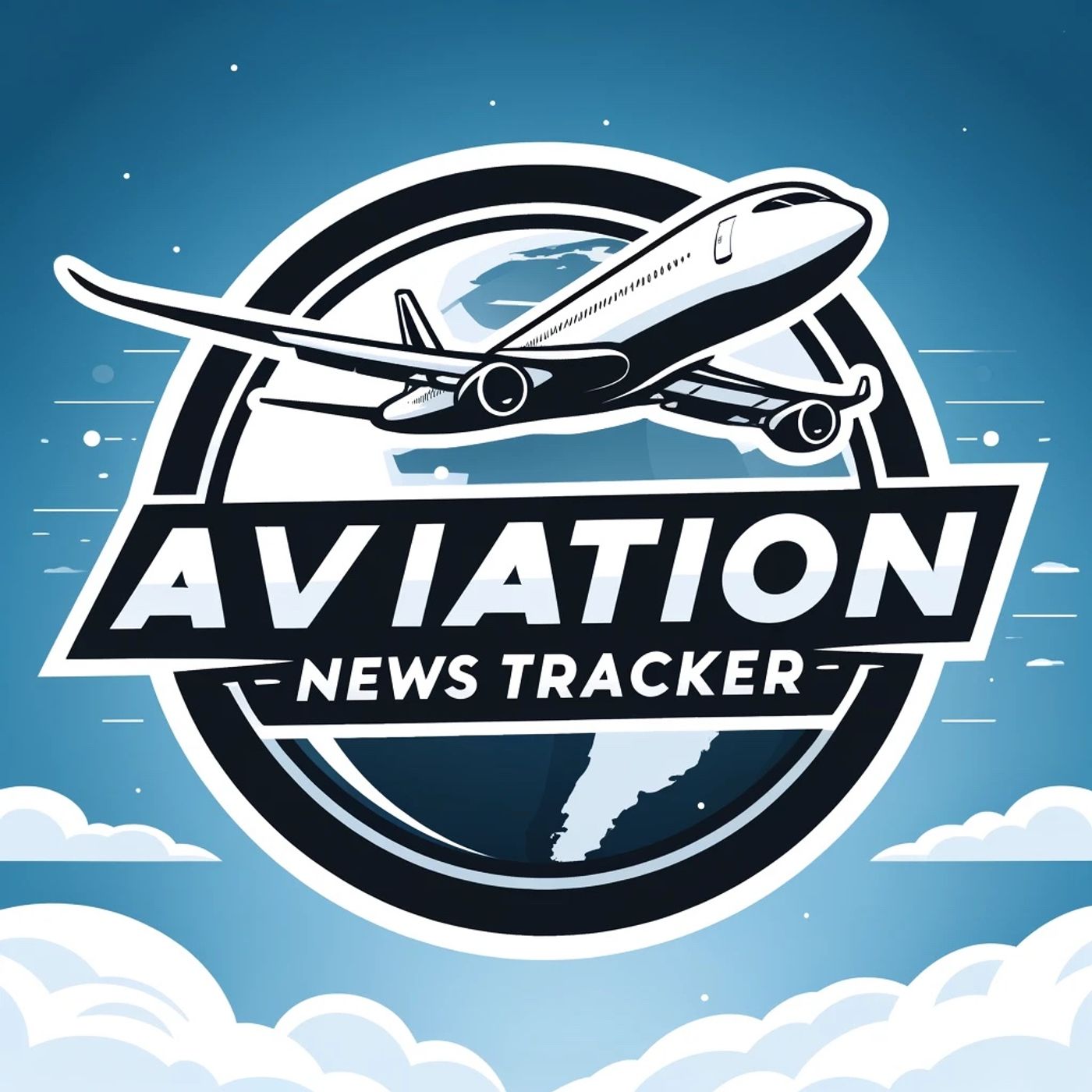Aviation's Rapid Shifts: Deals, Launches, and Supply Chain Challenges
Update: 2025-10-22
Description
In the past 48 hours, the global aviation industry has seen rapid shifts marked by new deals, product launches, regulatory milestones, and persistent operational challenges. Market activity remains robust, with industry leaders aggressively modernizing fleets and expanding global infrastructure. Swiss International Air Lines took delivery of its first Airbus A350-900, advancing its sustainability and service goals while Ryanair inaugurated a 130 million euro simulator center in Krakow, aiming to train up to 500 aviation professionals per day to support future growth.
Recent deals are shaping the sector’s competitive landscape. Frontier Airlines announced a strategic partnership with Etraveli Group to expand NDC distribution, improving digital booking and ancillary sales for consumers across varied platforms. Meanwhile, Silk Way AFEZCO and ExecuJet have partnered to create a new fixed-base operator facility in Azerbaijan, signifying the region’s emergence as a premium business aviation hub. Boeing Jeppesen and Bytron renewed a five-year commitment to supply advanced digital dispatch and briefing solutions, a move designed to help airlines streamline operations and enhance safety amid ongoing disruption.
Innovations in mobility are gaining momentum as Korean Air signed an agreement to acquire up to 100 Midnight electric vertical takeoff and landing aircraft, pushing South Korea closer to leading the advanced air mobility space. Airbus is also widening its reach with a second jet assembly line in China to meet surging Asian demand and accelerate production.
The industry remains challenged by systemic supply chain issues. An IATA and Oliver Wyman report this week cites labor shortages, material constraints, and bottlenecks as key barriers to restoring output to pre-pandemic levels. While aircraft demand is at record highs, OEMs and suppliers continue to face delays, reinforcing the urgency of digitalization and supply chain diversification.
Consumer travel patterns are shifting, with low-cost carriers like SkyUp Airlines and Southwest Airlines expanding to untapped markets such as Anchorage and destinations in Eastern Europe. The rollout of the European Union’s digital Entry Exit System is expected to reduce border wait times and improve security for non-EU nationals, reshaping travel flows.
Compared to last quarter, the industry is seeing more diversified partnerships, faster product rollouts, and greater moves toward digitization, but persistent supply limitations and restructuring efforts such as Spirit Airlines’ transfer of an order for 52 Airbus aircraft to AerCap signal that volatility will continue shaping strategies for months ahead.
For great deals today, check out https://amzn.to/44ci4hQ
This content was created in partnership and with the help of Artificial Intelligence AI
Recent deals are shaping the sector’s competitive landscape. Frontier Airlines announced a strategic partnership with Etraveli Group to expand NDC distribution, improving digital booking and ancillary sales for consumers across varied platforms. Meanwhile, Silk Way AFEZCO and ExecuJet have partnered to create a new fixed-base operator facility in Azerbaijan, signifying the region’s emergence as a premium business aviation hub. Boeing Jeppesen and Bytron renewed a five-year commitment to supply advanced digital dispatch and briefing solutions, a move designed to help airlines streamline operations and enhance safety amid ongoing disruption.
Innovations in mobility are gaining momentum as Korean Air signed an agreement to acquire up to 100 Midnight electric vertical takeoff and landing aircraft, pushing South Korea closer to leading the advanced air mobility space. Airbus is also widening its reach with a second jet assembly line in China to meet surging Asian demand and accelerate production.
The industry remains challenged by systemic supply chain issues. An IATA and Oliver Wyman report this week cites labor shortages, material constraints, and bottlenecks as key barriers to restoring output to pre-pandemic levels. While aircraft demand is at record highs, OEMs and suppliers continue to face delays, reinforcing the urgency of digitalization and supply chain diversification.
Consumer travel patterns are shifting, with low-cost carriers like SkyUp Airlines and Southwest Airlines expanding to untapped markets such as Anchorage and destinations in Eastern Europe. The rollout of the European Union’s digital Entry Exit System is expected to reduce border wait times and improve security for non-EU nationals, reshaping travel flows.
Compared to last quarter, the industry is seeing more diversified partnerships, faster product rollouts, and greater moves toward digitization, but persistent supply limitations and restructuring efforts such as Spirit Airlines’ transfer of an order for 52 Airbus aircraft to AerCap signal that volatility will continue shaping strategies for months ahead.
For great deals today, check out https://amzn.to/44ci4hQ
This content was created in partnership and with the help of Artificial Intelligence AI
Comments
In Channel





